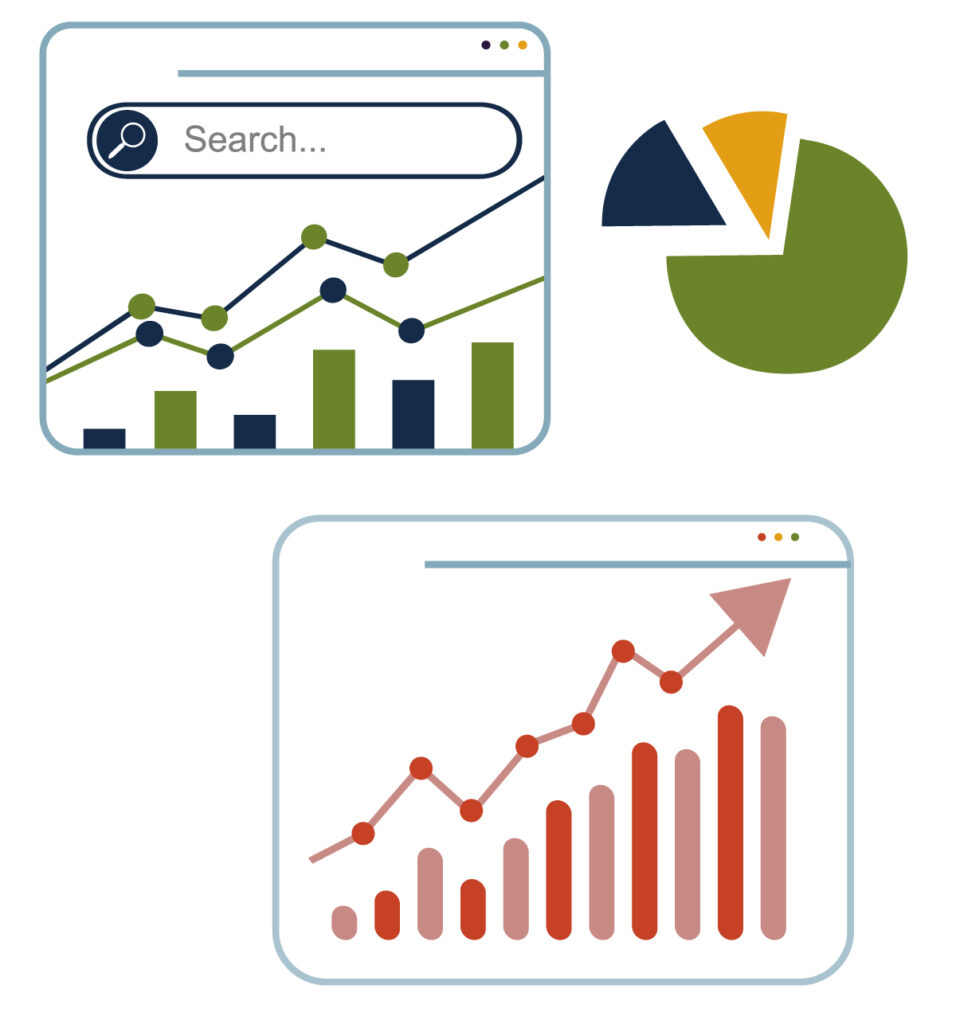
Digital marketing is a core piece of any integrated marketing strategy today. No matter what kind of business you’re promoting, a substantial amount of your target audience is almost certainly spending time online every day, so reaching them where they’re already at is an effective strategy.
What is digital marketing?
Digital marketing is any kind of marketing that happens online. Some channels and strategies include:

 Display advertising
Display advertising
Paid ads which consist of a visual ad component such as an image, gif or video. The ad typically includes a call to action and is clickable, leading to a landing page.
Search engine marketing (SEM)
Text ads that appear toward the top of search engine results pages. These ads are placed and ranked using paid keyword targeting and strategic text copy. These are also referred to as PPC (pay-per-click).
Organic social media
Any social media posts from your business’ account are a form of digital marketing, because they’re getting your brand in front of your audience. It’s best to plan a social media strategy so you’re posting fairly regularly – but also post spontaneous, timely content.
Many businesses have the option for users to subscribe to an e-newsletter list from their website, or have a lead generation process that involves getting users to subscribe to receive emails, another supporting tactic for brand awareness.
Radio/audio
Ads that involve sound only and are intended for audio-only consumption, such as ads on the radio or streaming platforms like Spotify.
Video
Video ads placed anywhere a display ad would be, or as an in-stream ad on a streaming service.
Search Engine Optimization (SEO)
Strategies to get your site to rank as highly as possible in search results for users looking for your products or services.

What are the benefits of digital marketing compared to traditional?
The main difference between digital and traditional advertising is trackability. With most digital strategies, code can be added to track source, campaign, and even the exact ad a user visited your site from.
Gaining website user insights
You can use Google Analytics to learn more about what your users are doing on your site. Once you get a user to your website, no matter their original source, their customer experience can be curated via your landing page. A landing page should have copy relevant to your ads, and have a clear call to action that you want users to take.
User actions such as button clicks, form starts and completions, and visits to other pages will be shown collectively in your Google Analytics dashboard. You can use this data to understand the effectiveness of your ads and landing page, and to gain insights for improvement.

Retargeting users who recognize your brand
Another benefit of tracking is the ability to retarget existing customers, or users who have simply visited your website in the past. Retargeting campaigns can be created by targeting a customer list or by setting up a rule for users to receive retargeting ads if they have visited certain URLs in the past few months.

What goes into a digital marketing campaign?
It takes a lot of planning and set up time to implement a digital marketing campaign, but the results can be worth the investment. It can help to create a checklist to ensure you’re planning all the necessary components ahead of time. Below are some questions to consider.
What is my overall campaign goal?
Are you simply trying to raise awareness by getting your brand in front of a high amount of people, or are you trying to get users to take a specific action? Determining this may help inform your messaging.
What is my target audience?
Think about attributes of your intended audience, such as demographics, interests, stage of life, and purchase habits.
What visual creative will I need?
Try to create something eye-catching with a clear message.
What do I want users to do upon seeing my ad?
Generally, you’ll want them to complete a trackable conversion action like clicking the ad to visit your site, giving you a phone call, or completing a lead generation form. This is important, as it’s how you’ll measure performance.
If a user clicks my ad and visits my site, what will their experience be?
The landing page should appear relevant to the ad by using similar keywords or images, and should have a clear call to action for the user to continue down the customer journey path.
What keywords and search phrases are my target audiences using?
This helps inform an SEM or SEO strategy.
Want to find out more?
Digital marketing can be a robust complement to your print and traditional advertising efforts, and can give you a better sense of your return on investment because of its conversion tracking capabilities. Interested in trying out a digital campaign or SEO strategy for your brand? Neuger offers digital marketing as part of our advertising services. Reach out to us today to learn more and get started!